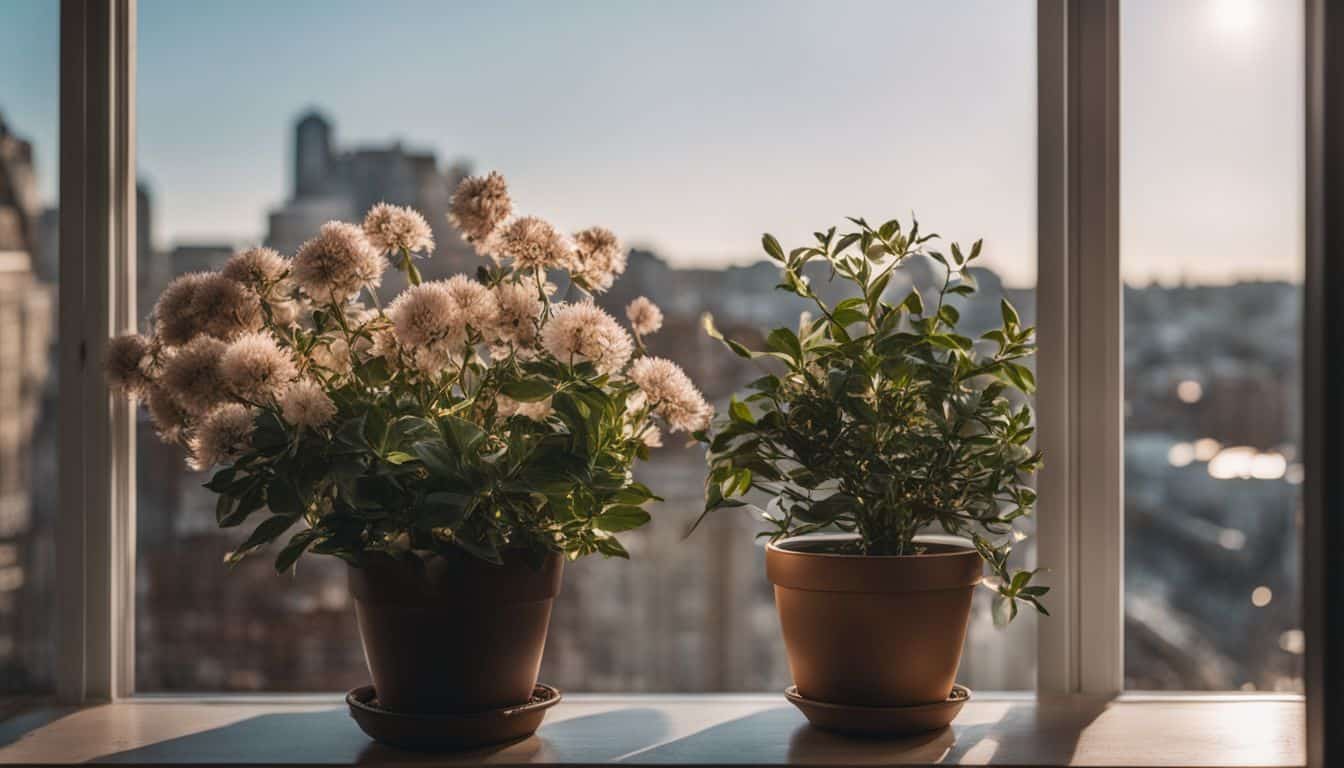Balancing mental health while in isolation can often seem like trying to scale a mountain in the dark. Believe me, I know that feeling well. It nudged me into diving headfirst into extensive research to discover efficient tactics that might ease the process.
This article is set to explore 5 fundamental techniques for preserving your emotional wellbeing during periods of solitude – all supported by authorities within psychology and wellness frameworks.
So let’s embark on this journey together; unearthing novel approaches towards fostering resilience and nurturing positivity amidst loneliness!
Key Takeaways
- Maintaining mental health in isolation can be challenging due to feelings of loneliness, increased stress and anxiety, lack of routine, and limited social interaction.
- Five effective strategies for maintaining mental health during isolation include: connecting with others through technology, engaging in physical activity and exercise, practicing mindfulness and self-care, learning new skills or hobbies, and giving back to others through acts of kindness.
- Establishing a daily routine is essential for maintaining mental health in isolation as it provides structure, sets goals, balances productivity with relaxation. It helps bring stability and predictability to our lives.
- Balancing productivity and relaxation is vital when establishing a daily routine. Setting aside time for work while also giving yourself breaks allows you to make the most out of your day without feeling overwhelmed. Remember that relaxation is not wasted time; it is crucial for mental rejuvenation and overall well-being.
Challenges of Maintaining Mental Health in Isolation
Maintaining mental health during isolation can be challenging due to feelings of loneliness and isolation, increased stress and anxiety, lack of routine and structure, and limited social interaction.
Loneliness and isolation
Being alone too much is hard. It can lead to feeling lonely and make you sad. It might even cause health issues like heart disease and poor sleep. If you don’t talk to people often, stress may grow.
This stress could plunge you deeper into loneliness and leave you feeling cut off from others. When we feel connected, we are happier and healthier! But if we feel left out, it can lead to sadness or fear which makes the isolation worse.
Taking time for yourself is good but being cut off a lot is not healthy for us humans who love to chat with others!
Increased stress and anxiety
Stress and anxiety can grow when we’re alone. The COVID-19 pandemic has made this problem bigger. Fear, sadness, and loneliness have sprung up in more people’s minds. We are not used to being on our own all the time, so it is normal to feel these feelings.
Living by yourself does not mean you are lonely or anxious all the time though. You might think you’re alone if you don’t talk or see other people a lot. This feeling can hurt your sleep, make it hard to focus, and make your mind age faster.
But there are ways to deal with stress and keep your mental health strong while being isolated.
Lack of routine and structure
Life without a usual plan can be tough. Our brains thrive on order, but isolation flips things around sometimes. Days start to mix up when we get no cues from outside life. This can make us feel upset, cranky, or even lead to worse mental health issues.
A lack of daily programmed activities may cause stress and trouble sleeping too. The recent virus lockdown showed the harsh side of this truth. People felt more alone than ever before because of no structure in their days at home!
Limited social interaction
Maintaining social connections is crucial for our mental health, especially in times of isolation. The lack of social interaction can lead to feelings of loneliness and have negative effects on our emotional wellbeing.
Studies have shown that chronic loneliness is associated with higher levels of anxiety and an increased risk of health problems like heart disease and depression. Moreover, limited social interaction can even contribute to sleeplessness and reduced immune function.
To combat these challenges, it’s important to find ways to stay connected with others through technology, participate in virtual hangouts or online communities, and offer support to those in need through acts of kindness.
5 Ways to Maintain Mental Health in Isolation
Here are five practical strategies to help you maintain your mental health during isolation. From connecting with others through technology to practicing mindfulness and self-care, these techniques can make a big difference in how you feel.
Read on to learn more about taking care of your well-being in challenging times.
Connect with others through technology
Staying connected with others is important for our mental health, especially when we’re in isolation. Thankfully, technology makes it easy to connect face-to-face with loved ones even when we can’t be together physically.
Through video chats, email, and social media, we can stay in touch and combat feelings of loneliness. Social media platforms also provide a way to relieve boredom and feel connected to others.
In fact, studies show that maintaining social connections through technology can help reduce feelings of isolation. So let’s make use of these digital tools to stay connected with our friends and family during this time!
Engage in physical activity and exercise
Physical activity and exercise are incredibly important for maintaining both our physical fitness and mental wellbeing. When we engage in regular exercise, it can have a positive impact on our emotional health and provide psychological benefits.
By incorporating an exercise regimen into our daily routine, we can find a balance between our physical and mental well-being. Whether it’s going for a jog, swimming, cycling, or even just taking a walk outside, these aerobic exercises have been shown to reduce anxiety and depression while improving sleep quality.
Even if we’re stuck at home, there are plenty of options for staying active such as practicing yoga, dancing to music, or doing home-based exercises. Increasing our physical activity not only contributes to improved mental health but also enhances overall health and well-being.
Practice mindfulness and self-care
Taking the time to practice mindfulness and self-care is crucial for maintaining your mental health during times of isolation. Mindfulness involves being present in the moment and paying attention to your thoughts, feelings, and sensations without judgment.
This can help reduce stress, improve emotional balance, and enhance overall well-being. Engaging in relaxation techniques like deep breathing or meditation can also promote a sense of calmness and provide an opportunity for self-reflection.
By prioritizing self-care activities such as getting enough sleep, eating healthy meals, and engaging in hobbies that bring you joy, you can nurture your mind-body connection and build emotional resilience.
Learn new skills or hobbies
Learning new skills or pursuing hobbies can greatly enhance our mental health and overall wellbeing. When we engage in activities that interest us, we not only develop new abilities but also boost our self-worth and increase our self-assurance.
Additionally, learning new skills can help alleviate stress and promote a sense of accomplishment. By cultivating hobbies, we foster social connections and alleviate feelings of loneliness.
Pursuing interests that involve physical activity also has numerous health benefits, such as reducing stress levels and improving overall fitness. So why not take this time to explore something you’ve always wanted to learn or try out a new hobby? It’s a wonderful way to enhance your mental health while having fun along the way!
Give back to others through acts of kindness
Acts of kindness, such as giving back to others, can have a positive impact on our mental wellbeing, especially in isolation. When we show compassion and generosity towards others, it creates a sense of connection and belonging that can combat feelings of loneliness and isolation.
Engaging in acts of kindness not only benefits those we help but also generates positive emotions within ourselves, leading to a greater sense of fulfilment and improved mental health.
Whether it’s volunteering for a cause or simply offering support to someone in need, acts of kindness contribute to our emotional wellbeing by fostering empathy, gratitude, and social connection.
Establishing a Daily Routine
Creating a daily routine is essential for maintaining mental health in isolation. It provides structure, sets goals, and balances productivity with relaxation. Find out how to establish a routine that works for you and promotes overall wellbeing by reading more here.
Importance of structure and consistency
Establishing a daily routine is crucial for maintaining mental health in isolation. It provides organization, order, and stability in our lives, which can be especially helpful during times of unpredictability and stress.
Having a consistent routine creates a sense of predictability and reliability, giving us something to rely on when everything else feels uncertain. Routines not only help us cope with change but also provide balance and harmony by allowing us to prioritize our tasks and activities.
They contribute to better sleep patterns and relaxation, leading to improved overall mental well-being. By incorporating structure and consistency into our daily lives, we can navigate through isolation with more stability and resilience.
Setting goals and priorities
Setting goals and priorities is crucial for maintaining mental health, especially in times of unpredictability and stress. When we have clear objectives to work towards, it gives us a sense of direction and purpose.
By setting reasonable daily goals and outlining our priorities, we can avoid feeling overwhelmed by a long list of tasks. Additionally, setting goals helps us face emotional and behavioral difficulties and reconnect with our personal values.
It allows us to focus on what truly matters to us and gives us a sense of accomplishment when we achieve those goals. So let’s prioritize what’s important to us each day and set achievable goals that align with our values, helping boost our mood and overall mental well-being.
Creating a schedule for work and leisure activities
Establishing a daily routine is crucial for maintaining mental health during isolation. Having a schedule helps bring structure, predictability, and stability to our lives in times of unpredictability and stress.
It can also be an effective way to manage anxiety and maintain overall well-being. By creating a daily schedule that includes both work and leisure activities, we are able to prioritize our tasks, set goals, and find a balance between productivity and relaxation.
Consistency in following the schedule can help reduce stress levels and provide a sense of accomplishment. Remember to prioritize primary routines like healthy eating habits, sleep, and personal hygiene before engaging in secondary routines like leisure activities.
Balancing productivity and relaxation
When establishing a daily routine, it is crucial to find a balance between productivity and relaxation. This means setting aside time for work or tasks that need to be done, while also making sure to give yourself breaks and moments of rest.
By managing your time effectively and prioritizing your tasks, you can make the most out of your day without feeling overwhelmed or burnt out. Taking short breaks throughout the day can help you recharge and refocus your mind, allowing you to maintain productivity in the long run.
It’s important to remember that relaxation is not wasted time; it is essential for mental rejuvenation and overall well-being. So, don’t forget to schedule in some leisure activities or self-care practices that bring you joy and help reduce stress.

Managing News and Social Media Consumption
Limit exposure to negative news by setting limits on daily news consumption and focusing on verified information from reputable sources. Interact with positive and uplifting content on social media platforms, using them as tools for meaningful connections rather than sources of stress or anxiety.
Limiting exposure to negative news
To maintain my mental health in isolation, it’s important for me to limit my exposure to negative news. Constantly hearing about the pandemic can make me feel anxious and stressed out.
That’s why I choose not to consume too much news or spend too much time on social media. Instead, I focus on finding positive and uplifting content that helps me stay informed without overwhelming myself.
By creating boundaries with media and being selective about what I expose myself to, I can better manage my anxiety and protect my emotional well-being.
Fact-checking and verifying information
Fact-checking and verifying information is crucial, especially during times of crisis like the COVID-19 pandemic. Misinformation can spread quickly, leading to confusion and anxiety.
To combat this, it’s important to verify the authenticity of news before sharing it with others. Look for reliable sources such as the World Health Organization or trusted news outlets.
They provide accurate and up-to-date information about mental health and other aspects of the pandemic. By fact-checking and verifying information, we can help ensure that we are well-informed and avoid unnecessary stress caused by false information.
Interacting with positive and uplifting content
During times of isolation, it’s essential to interact with positive and uplifting content. Engaging with such content can help improve our mental well-being and boost our mood. Instead of focusing on negative news or harmful behaviors online, we can choose to seek out sources that inspire us or bring joy.
This could include following social media accounts that share motivational quotes, watching funny videos or feel-good movies, listening to uplifting podcasts, or reading books that uplift our spirits.
By surrounding ourselves with positivity in the online world, we can cultivate a more optimistic mindset and enhance our emotional well-being.

Using social media for meaningful connections
Social media can be a powerful tool for building social connections and maintaining mental health, especially in times of isolation. It allows us to form and maintain friendships online, connect with others who are going through similar experiences, and combat feelings of loneliness.
By using social media, we can stay informed about current health updates and feel supported by our virtual communities. Meaningful online interactions contribute to our mental wellbeing as they help us form social bonds and remind us that we are not alone.
The Basics of Maintaining Mental Health in Isolation
Maintaining mental health in isolation is crucial for our emotional, psychological, and social well-being. Here are some basics to help you stay mentally healthy during this time:.
– Take care of your thoughts and feelings. Acknowledge any anxiety or depression you may be experiencing and seek support if needed.
– Communicate with loved ones regularly. Reach out to friends and family members who can provide comfort, advice, or simply a listening ear.
– Find ways to combat loneliness and social isolation. Stay connected through phone calls, video chats, or even sending letters or care packages.
– Practice self-care by engaging in activities that bring joy and relaxation. Prioritize things like deep breathing exercises, meditation, hobbies you enjoy, or spending time outdoors if possible.
– Maintain a routine that provides structure and consistency. Set goals for yourself each day and create a schedule that balances work tasks with leisure activities.
Remember, taking care of your mental health is just as important as physical survival. By implementing these basics into your daily routine, you can nurture your well-being even in isolation.
Seeking Professional Help and Support
Seeking professional help and support is crucial for maintaining mental health in isolation. Online therapy options, virtual support groups, helplines, and reaching out to friends and family can provide the necessary support during this challenging time.
Online therapy and counseling options
I believe that seeking professional help and support is a crucial step in maintaining mental health, especially during times of isolation. Online therapy and counseling options provide convenient access to mental health services from the comfort of your own home.
With telehealth, you can connect with licensed therapists and counselors through video sessions or online chat platforms. This form of therapy has been proven effective for addressing issues such as isolation, depression, and anxiety.
So if you’re feeling overwhelmed or struggling with your mental well-being, consider exploring online therapy as a viable option for getting the support you need.
Virtual support groups and communities
Virtual support groups and communities are a helpful resource for maintaining mental health in isolation. They provide a platform for connecting with others facing similar challenges, sharing experiences, and offering support.
These online groups have been shown to reduce psychological distress, such as depression. In virtual support groups, individuals can seek advice, discuss symptoms and coping strategies, and learn from one another’s experiences.
It’s a safe space where people feel understood and supported without judgment. Being part of a virtual support group can offer innovative ideas for self-care, stress management, fatigue management, and overall mental well-being.
Utilizing helplines and crisis hotlines
I have found that utilizing helplines and crisis hotlines can be a great way to seek professional help and support for maintaining mental health, especially in isolation. These services, such as SAMHSA’s National Helpline and the disaster distress helpline, are available 24/7 and provide immediate assistance to individuals and families facing mental health disorders or emotional distress related to natural or human-caused disasters.
They offer referral services, information, and even crisis counseling from trained professionals. The new 988 Suicide & Crisis Lifeline is also available to help with mental health issues.
It’s important to know that these helplines are there for us whenever we need them.
Reaching out to friends and family for support
When we’re feeling isolated or struggling with our mental health, it’s important to reach out to friends and family for support. They can provide emotional support and help us through difficult times.
Talking to someone we trust about what we’re going through can make a big difference in how we feel. Seeking help from sources other than friends, such as therapists or helplines, is also beneficial.
Friends and family play a crucial role in our recovery process when dealing with mental health problems. It’s important to remember that having a strong social support network is emphasized by mental health professionals for maintaining good psychological health.
Practicing Self-Care and Mindfulness
Engage in relaxation techniques like deep breathing and meditation, take breaks to incorporate leisure activities, prioritize sleep and healthy eating habits, and engage in activities that bring joy and relaxation.
Engaging in relaxation techniques (e.g., deep breathing, meditation)
When it comes to maintaining my mental health in isolation, I find that engaging in relaxation techniques like deep breathing and meditation really helps. Deep breathing is a simple yet powerful way to relax.
It involves taking slow, full breaths that help calm the mind and body. Meditation is another effective technique that allows me to focus on my breath and bring attention to the present moment.
These practices not only increase mindfulness but also reduce stress, improving my overall well-being. So when I’m feeling overwhelmed or anxious, I take a few moments for deep breathing or meditation to bring a sense of calmness and clarity into my day.
Taking breaks and incorporating leisure activities
During times of isolation, it’s important to take regular breaks and incorporate leisure activities into our routines. Taking breaks can give us a chance to rest, refresh, and recharge our minds and bodies.
It’s essential for our mental health to decompress from stress and allow ourselves time for recreation and relaxation. By engaging in enjoyable leisure activities during these breaks, such as reading a book or listening to music, we can find moments of rejuvenation that bring joy and relaxation.
Practicing self-care during these breaks is also crucial – whether it’s through mindfulness exercises like deep breathing or meditation or taking care of our physical well-being by prioritizing sleep and healthy eating habits.
Prioritizing sleep and healthy eating habits
Taking care of my sleep and eating habits is crucial for maintaining my mental health while in isolation. When I prioritize getting enough sleep, it helps with memory retention and allows me to better process and retain information.
Additionally, a good night’s rest improves my overall mood and reduces stress levels.
In terms of nutrition, eating healthy foods provides the essential nutrients that support brain function and mental well-being. By nourishing my body with nutritious meals and snacks, I am giving myself the energy needed to stay focused, productive, and positive throughout the day.
I find that creating a routine around sleep and meal times helps me establish consistency in my daily life. This routine provides structure and a sense of normalcy during uncertain times.
It also helps me strike a balance between productivity and relaxation by setting clear boundaries between work time and leisure time.
Engaging in activities that bring joy and relaxation
Taking part in activities that bring joy and relaxation can have a positive impact on our mental health during isolation. It’s important to prioritize self-care and find ways to nurture ourselves emotionally and mentally.
Doing things we enjoy, such as reading a good book, listening to music, or spending time in nature, can help us unwind and recharge. Engaging in hobbies or creative pursuits also allows for self-expression and helps alleviate stress.
By finding activities that bring joy and relaxation, we can enhance our emotional well-being and promote a sense of calmness amidst the challenges of isolation.
Creating a Healthy Home Environment
When it comes to maintaining mental health in isolation, creating a healthy home environment is crucial. From establishing designated work and relaxation spaces to bringing nature indoors, discover how small changes can make a big impact.
Read more for tips on optimizing your living space and enhancing your well-being.
Establishing designated work and relaxation spaces
Creating designated work and relaxation spaces in your home is crucial for maintaining a healthy environment during isolation. By having a separate area for work, you can establish boundaries and focus on your tasks more effectively.
Make sure this space is well-organized, decluttered, and free from distractions. On the other hand, having a relaxation space allows you to unwind and rejuvenate after a long day. Fill this area with things that bring you joy, such as plants or cozy blankets.
By dedicating specific areas for work and relaxation, you can create an environment that supports your mental health and promotes overall well-being.
Decluttering and organizing living areas
When it comes to maintaining mental health in isolation, decluttering and organizing your living areas can have a big impact. A cluttered space can make us feel stressed and overwhelmed, while an organized and tidy environment promotes calmness and a positive mindset.
Cleaning up not only improves the physical appearance of your home but also helps to reduce stress and anxiety levels. Studies show that tidying up can increase feelings of wellbeing and improve overall mental health.
So, take some time to declutter your living areas, create a designated workspace if needed, and organize your belongings for a healthier living space. It’s amazing how much better you’ll feel when everything is in its place!
Bringing nature indoors (e.g., houseplants)
I love filling my home with houseplants. Not only do they add a touch of beauty to my space, but they also have some amazing mental health benefits. Did you know that keeping houseplants indoors can actually boost your mood and improve your mental wellbeing? It’s true! Studies have shown that being around greenery, whether it’s indoor plants or gardens, can reduce stress and increase positive feelings.
Taking care of houseplants is also associated with creating a healthy home environment. So go ahead and bring nature inside by adding some beautiful houseplants to your living space.
You’ll be amazed at the difference it can make in your overall well-being!
Creating a soothing and calming atmosphere
To create a soothing and calming atmosphere in your home, it’s important to focus on creating a clean and organized space. Keeping your living area tidy promotes a sense of calmness and control over your daily life.
Additionally, incorporating natural elements like indoor plants can have a calming effect on your mental health. Studies show that being surrounded by nature or even just having houseplants can reduce stress levels and improve overall well-being.
So, take some time to declutter, organize, and bring in some greenery to create a serene and tranquil environment that promotes relaxation and rejuvenation.
Maintaining Social Connections
Set up virtual hangouts and join online communities to stay connected with others, send letters or care packages to loved ones, and volunteer or offer support to those in need.
Setting up virtual hangouts and gatherings
Staying connected with others is important for our mental health, even when we can’t be together in person. That’s why setting up virtual hangouts and gatherings is a great way to maintain social connections.
You can use video chat platforms like Zoom or Skype to have face-to-face conversations with friends and family. It’s just like being in the same room, except you’re using your computer or phone! You can play games together, have virtual movie nights, or simply catch up on each other’s lives.
Virtual hangouts are a fantastic way to combat loneliness and stay connected with loved ones, even when you can’t physically be together.
Participating in online communities and forums
I find participating in online communities and forums really helpful for maintaining my mental health during isolation. These platforms allow me to connect with others, even if we’re physically far apart.
I can join virtual communities and online forums where I can interact with like-minded individuals who share similar interests or experiences. Being part of these communities not only provides social interaction but also offers emotional support and a sense of belonging.
It’s comforting to know that there are others out there who understand what I’m going through and are there to offer encouragement and advice. Plus, being able to engage in discussions, ask questions, or share my own thoughts helps me feel connected and less isolated.
Sending letters or care packages to loved ones
Maintaining social connections is crucial for our mental health, especially during times of isolation. That’s why sending letters or care packages to loved ones can be a great way to stay connected and support each other emotionally.
Whether it’s a handwritten letter or a thoughtful package filled with their favorite things, these gestures show that you care and are thinking about them. It’s not just about the act of receiving something physical; it’s about the emotional connection and reminder that we’re not alone.
So let’s take this opportunity to reach out to our loved ones, share some kindness, and strengthen our relationships even when we can’t be together physically.
Volunteering or offering support to those in need
Helping others through volunteering or offering support can have a positive impact on your mental health. It allows you to counteract stress, anger, and anxiety while giving you a sense of purpose in life.
By reaching out to those in need, you feel less lonely and build connections with new friends. Volunteering also boosts self-esteem and overall wellbeing. So why not lend a helping hand? Whether it’s community service, charity work, or simply extending empathy to others, supporting those in need can bring joy and fulfillment to your life while making a difference in the world around you.
Conclusion on Maintaining Mental Health in Isolation
In conclusion, maintaining mental health in isolation is crucial for our overall well-being. By connecting with others through technology, engaging in physical activity, practicing mindfulness and self-care, learning new skills or hobbies, and giving back to others through acts of kindness, we can master the challenges that come with being isolated.
Remember to establish a daily routine, manage news and social media consumption wisely, seek professional help when needed, practice self-care and mindfulness regularly, create a healthy home environment, and maintain social connections.
Together these strategies can help us navigate this difficult time with resilience and positivity.
FAQs on Maintaining Mental Health in Isolation
1. Why is it important to maintain mental health during isolation?
It’s important to maintain mental health during isolation because it can help reduce feelings of loneliness, anxiety, and stress, and promote overall well-being.
2. What are some ways to stay connected with others while in isolation?
Some ways to stay connected with others while in isolation include video calls, phone calls, sending messages or emails, participating in online communities or virtual events, and reaching out for support when needed.
3. How can I manage stress and anxiety while in isolation?
To manage stress and anxiety while in isolation, you can try relaxation techniques such as deep breathing exercises or meditation, engage in activities you enjoy like reading or listening to music, establish a routine that includes physical exercise and healthy eating habits, and practice self-care by getting enough sleep and taking breaks from the news or social media if they cause distress.
4. Are there any activities I can do at home to improve my mental health?
Yes! There are many activities you can do at home to improve your mental health such as practicing mindfulness or gratitude exercises, journaling your thoughts and emotions, engaging in hobbies or creative outlets like painting or writing, trying out new recipes for cooking or baking, staying physically active through home workouts or yoga practice.
5. How can I seek professional help for my mental health during this time?
You can seek professional help for your mental health during this time by contacting licensed therapists who offer teletherapy sessions via video calls or phone calls. Many mental health professionals have adapted their practices to provide remote support during times of social distancing.





Leave a Reply